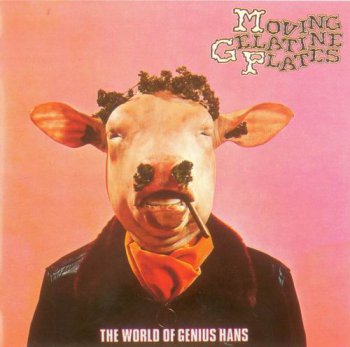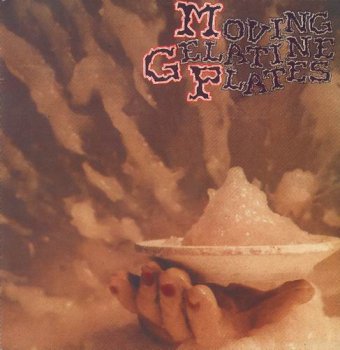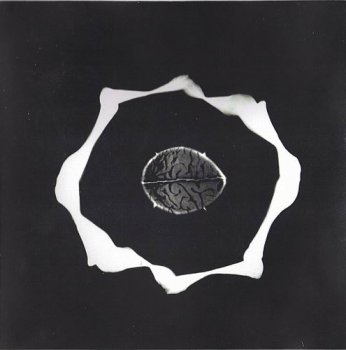DISCO 80’s «Exclusive for "lossless-galaxy" Vinyl Collection» Part 1 (100 × LP · Only Best Albums · 1975-2025)
Performer: Various Album / collection: «Disco 70’-80’-90’s» +++++ Series: Original Vinyl LP™ – Label: (c)(p) 1975-2025 Made in Europe, Japan, USA. Source: Rip by bazar, Dymokust …and many others… ⇒ Conversion 32/96/192kHz by KoGGaN™ Official DR value: •15•13•13•12•13•13•12•12•12•12•13•12•14•13•14•12•13•13•13•13•14• •12•14•13•12•13•14•11•16•12•12•13•13•12•15•13•15•12•12•13•13•13•13•13•13•14•14•12•13•12• •13•13•13•13•13•13•12•13•13•13•13•12•12•12•14•12•13•13•13•12•15•14•13•14•14•13•14•13•12•

DISCO 80’s «Exclusive for "lossless-galaxy" Vinyl Collection» Part 1 (100 × LP · Only Best Albums · 1975-2025)
Performer: Various Album / collection: «Disco 70’-80’-90’s» +++++ Series: Original Vinyl LP™ – Label: (c)(p) 1975-2025 Made in Europe, Japan, USA. Source: Rip by bazar, Dymokust …and many others… ⇒ Conversion 32/96/192kHz by KoGGaN™ Official DR value: •15•13•13•12•13•13•12•12•12•12•13•12•14•13•14•12•13•13•13•13•14• •12•14•13•12•13•14•11•16•12•12•13•13•12•15•13•15•12•12•13•13•13•13•13•13•14•14•12•13•12• •13•13•13•13•13•13•12•13•13•13•13•12•12•12•14•12•13•13•13•12•15•14•13•14•14•13•14•13•12•
08 10, 2025
ITALO-DISCO «MEGA Collection 'Golden Disco Series'» Part 2 (90 × CD • ESonCD/DWS/ZYX • Issue 2003-2025)
Performer: ♫ ITALO-DISCO Album / collection: «MEGA Albums Collection Best’80» +++++ Series: Golden Disco Series— Label: (c)(p) 1977-2025 ESonCD + DWS + ZYX Music. Source: Rip by KoGGaN™ scans by inet… Official DR value: •10•12•12•9/9•10/9•9/10•13•14•14•14•13•11•14•9•12•7/7•9•10•9/9• •10/9•9/10•9/10•9/10•6•7•12•13•9/10/10/10/10•8/9•9•15•12•11•8/7•9•12•11•7•9• •5/5•13•11•13•14•7•14•9•9•10•8/8•13•9/9•8•5/6•12•11•10•13•10•13•12•12•12•8/7/7•

ITALO-DISCO «MEGA Collection 'Golden Disco Series'» Part 2 (90 × CD • ESonCD/DWS/ZYX • Issue 2003-2025)
Performer: ♫ ITALO-DISCO Album / collection: «MEGA Albums Collection Best’80» +++++ Series: Golden Disco Series— Label: (c)(p) 1977-2025 ESonCD + DWS + ZYX Music. Source: Rip by KoGGaN™ scans by inet… Official DR value: •10•12•12•9/9•10/9•9/10•13•14•14•14•13•11•14•9•12•7/7•9•10•9/9• •10/9•9/10•9/10•9/10•6•7•12•13•9/10/10/10/10•8/9•9•15•12•11•8/7•9•12•11•7•9• •5/5•13•11•13•14•7•14•9•9•10•8/8•13•9/9•8•5/6•12•11•10•13•10•13•12•12•12•8/7/7•
08 10, 2025
Audio Fidelity + DCC Compact Classics Series – (72 × 24Kt Gold CD + Hybrid-SACD • 1956-2017)
Performer: Various Collection: Audio Fidelity, Legacy MasterSound, DCC Compact Classics Series— Label: (c)(p) 1956-2017 AF / Legacy / DCC / SBM Source: Rip by KoGGaN™ scans by inet… Official DR value: •13•13•13•13•10•12•14•12•10•13/12•13•13•11•14•13•14•11• •11•14•14•12•11•15•12•12•13•12•12•12•13•12•10•11•15•11•13•10•12•12•11•16• •12•12•11•13•11•11•14•12•13•11•11•14•16•12•14•12•11•12•11•12•10•10•12•13• •11•11•14•13•12•13•14/14• Catalog (Barcode): much… Genre / Style: Jazz, Blues, Rock… Year

Audio Fidelity + DCC Compact Classics Series – (72 × 24Kt Gold CD + Hybrid-SACD • 1956-2017)
Performer: Various Collection: Audio Fidelity, Legacy MasterSound, DCC Compact Classics Series— Label: (c)(p) 1956-2017 AF / Legacy / DCC / SBM Source: Rip by KoGGaN™ scans by inet… Official DR value: •13•13•13•13•10•12•14•12•10•13/12•13•13•11•14•13•14•11• •11•14•14•12•11•15•12•12•13•12•12•12•13•12•10•11•15•11•13•10•12•12•11•16• •12•12•11•13•11•11•14•12•13•11•11•14•16•12•14•12•11•12•11•12•10•10•12•13• •11•11•14•13•12•13•14/14• Catalog (Barcode): much… Genre / Style: Jazz, Blues, Rock… Year
08 10, 2025
Жанры
Lossless Galaxy Release
Русская музыка
--Поп
--Рок
--Панк
--Альтернатива
--Металл
--Рэп, Хип-Хоп, R'n'B
--Джаз и Блюз
--Фолк
--Шансон, Авторская песня
--СССР
Зарубежная музыка
--Pop
--Rock
--Hard Rock
--Progressive & Art-Rock
--Pop-Rock & Soft Rock
--Instrumental Rock
--Heavy, Traditional, Industrial Metal
--Power, Gothic, Sympho Metal
--Thrash, Speed, Groove, Modern Metal
--Death, Melodic Death, Doom, Dark Metal
--Black, Pagan, Folk, Viking Metal
--Alternative
--Punk
--Disco, Eurodance
--Rap, Hip Hop, R'n'B
--Reggae, Ska, Dub
--Jazz, Blues, Soul
--Folk, Country, Ethnic
--Electronic, Ambient, New Wave
--House, Techno, Trance
Другие жанры
--New Age, Relax, Meditative & Flamenco
--Chillout, Lounge, Downtempo, Trip-Hop
--Drum & Bass, Jungle, Breakbeat, IDM
--Classical / Классическая музыка
--Soundtrack
--Музыкальные сказки
Vinyl Rip
HI-Res / DVD-Audio / DTS
--SACD
--DSD
--DVD-Audio
Сборники Lossless-Galaxy
Альбомы 2022
Альбомы 2023
Альбомы 2024
Теги
1st Press 2022 2023 2024 2025 70... AOR Black Metal Blues Blues Rock Bootleg Series Classic Rock Death Metal Discography Exclusive for Lossless-Galaxy Folk Rock Fusion Hard Rock Heavy Metal Hi-Res Japanese Edition Jazz Jazz Rock lossless Melodic Death Metal Melodic Rock Modern Electric Blues Pop Pop Rock Power Metal Prog Rock Progressive Metal Progressive Rock Psych Rock Psychedelic Rock Rock SACD Symphonic Metal Thrash Metal Дискографии от KoGGaN
Архивы
Опрос
В каком формате хотели бы видеть релизы на сайте ?
 Автор: vitaljazz, 1 июля 2010, Комментариев: 0, Просмотров: 1 436
Автор: vitaljazz, 1 июля 2010, Комментариев: 0, Просмотров: 1 436MOVING GELATINE PLATES - THE WORLD OF GENIUS HANS - 1972

YEAR: 1972
STYLE: Progressive Rock/ Canterbury Scene
FORMAT: APE (Image + Log + Cue + Scans + 5% Recovery)
SIZE: 380 Mb
COUNTRY: France
THE BAND: Maurice Hemlinger / organ, trumpet, soprano and tenor saxophone, flute; Gerard Bertram / electric guitar, vocals acoustic guitar; Didier Thibault / bass, vocals, 12-string guitar; Gerard Pons / drums, percussion
Being one of the most relevant bands in the seminal age of French prog, Moving Gelatine Plates was a peculiar musical force influenced by "Third"-era Soft Machine and Supersister, in this way anticipating (to a certain degree) the kind of sophisticated folly that Gong will turn into an essential part of its signature sound. The progressive element abundantly instilled with jazzy overtones, the touch of psychedelia and the patent humor are the three core aspects of MGP's sound: their sophomore effort "The World of Genius Hans" is really worthy of the word genius that appears in the title. Because of the flamboyant styles provided by Helminger on sax and Thobault on bass we can appreciate the influences from Elton Dean and Hugh Hopper, which makes for the powerful SM element in MGP. All in all, it would be unfair to label this band as a mere clone of Ratledge, Wyatt & co., since the ensemble manages to create a refreshing proposal in a global level. The band really knows how to approach the complexity of the musical arrangements with precision and sobriety. Some guitar inputs by Bertram together with some vocal passages remind me of yet another icon of experimental rock on the other side of the Atlantic Ocean - that is, Frank Zappa (big band era). With its 14 minute span, the namesake track stands out as a well- ordained mini-epic that goes fluidly through its various motifs. 'Funny Doll' finds the band going for more candid ambiences: despite the fact that the sax and lead guitar lines are noticeable dissonant, this piece is predominantly gracious, closer to Hatfield & the North than to Soft Machine, with an extra touch of Zappaesque humor. 'Astromonster' bears a more mysterious feel, not in a creepy sense, but ethereal: the initial lines on flute and distorted bass are a pertinent initiation to the elaboration of the intricate passages that emerge from minute 3, creating a combination of jolly and hypnotic vibes. 'Moving Theme' digs deeper in the band's extroverted side, and so does 'Cauchemar': comparing both, I feel that the former is more aggressive. 'We Were Loving Her' is based on a series of monochromatic organ layers upon which various effects and ornaments on sax, guitar and bass go floating by. The emergence of a sung section is a pretext for the elaboration of a cohesive arrangement. This particular piece is closer to late 60s psychedelia than to standard Canterbury (if there is such thing, I mean.). The closing track 'Un Jour...' works as a brief epilogue on soprano sax that bears a very lyrical feel: I wouldn't have minded if it had been a bit longer, at least. Anyway, this is all there is and it is fine by me - actually, more than fine, since this albums is a real prog masterpiece in my book. This gem should not be missing in any good prog collection, regardless of the collector's pet sub-genre(s).
http://www.progarchives.com
http://www.progarchives.com
Track Listing:
01-The World of Genius Hans
02-Funny Doll
03-Astromonster
04-Moving Theme
05-Cauchemar
06-We Were Loving Her
07-Un Jour
08-Syntheme
09-L'alchimiste
10-Les etres d'or
11-Obres
12-Rire de peine
The Band:
- Maurice Hemlinger / organ, trumpet, soprano and tenor saxophone, flute
- Gerard Bertram / electric guitar, vocals acoustic guitar
- Didier Thibault / bass, vocals, 12-string guitar
- Gerard Pons / drums, percussion
Внимание! У Вас нет прав для просмотра скрытого текста.
Похожие новости:
Комментарии отсутствуют
Добавить комментарий!
Информация
Посетители, находящиеся в группе Гости, не могут оставлять комментарии к данной публикации.



